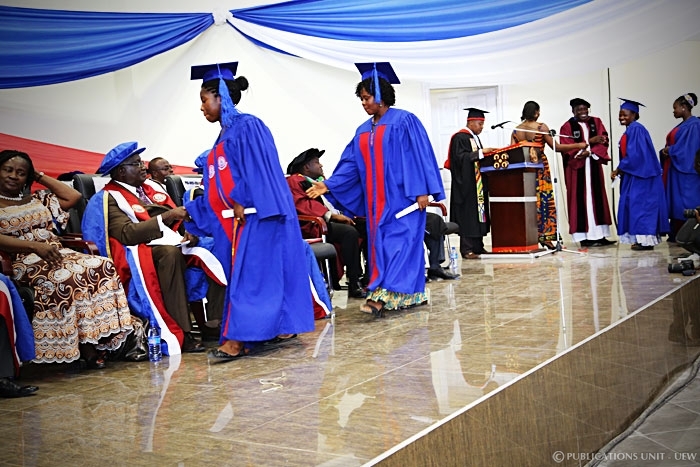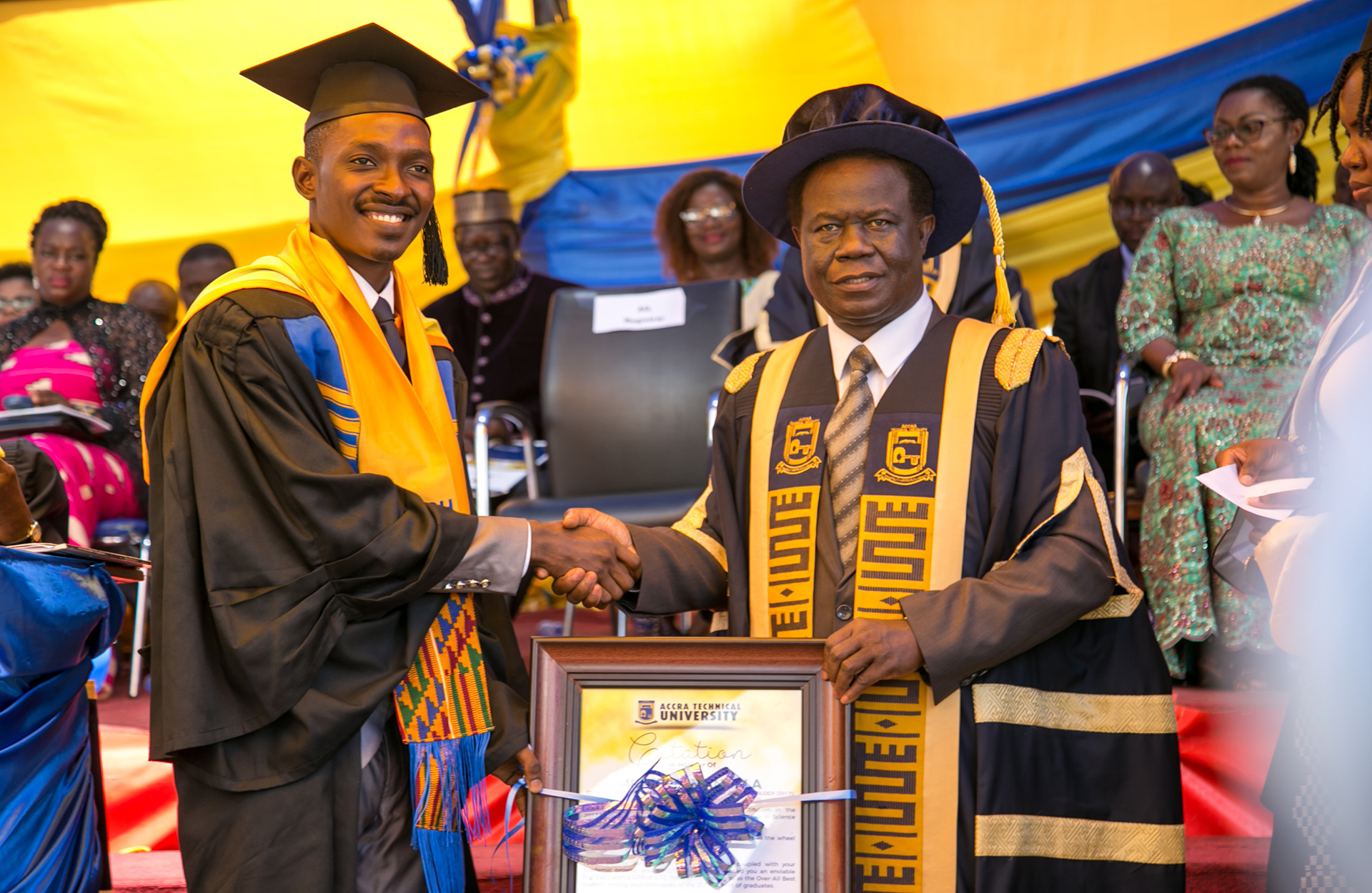Did I hear right? As though, I was dreaming, I woke up over the weekend to a story about the Minister of Education announcing at a Lecture that government intends to engage authorities of the country’s universities about reducing the length of undergraduate university education to three years. I found this story quite intriguing and puzzling. Why do I find it to be so?
Matters of education appear to have become one of the most easily toyed policies of our country. This is inspite of the fact that education remains the one single sector whose policies have very far reaching implications for both current and future generations impacting greatly on the growth trajectory of the country.
I do not think that it is for nothing that we have several state bodies within the education sector all working to ensure that education policy is well formulated, structured and implemented with expected outcomes.

So within the tertiary education sub-sector, we have the National Council for Tertiary Education (NCTE) whose mandate it is to essentially advise the Education Minister and ensure compliance by all tertiary institutions regarding policy; the National Accreditation Board (NAB) which accredits all tertiary institutions and programmes of study run in such institutions to ensure that they comply with the required standards and keep to same at all times; and the National Board for Professional and Technician Examinations (NABPTEX) that has a core mandate of administering schemes of examinations and standards for skill and syllabus competencies for non-university tertiary institutions in consultation with the National Accreditation Board, undertake routine evaluation of same.
Then, there is also the Council for Technical and Vocational Education and Training (COTVET) which concerns itself with building the skills for industry through competency-based training at all levels from second-cycle through to the highest levels of the tertiary level; interestingly, there are several other allied bodies that work in tandem with these bodies.
Long before I went to secondary school, I was told of a system prior to the 1980s that had university students undergoing a year’s programme called First University Examinations (FUE) upon entry. Progression into the main programme of study was thus premised on successful completion of the FUE. Then the Universities ran the three-term system thereby writing end-of-year examinations. The FUE component got scrapped along the line leaving the universities essentially running three-year undergraduate programmes. Aside the undergraduate degree programme, the University of Cape Coast had a default diploma programme for all its students thus leading to a four-year programme for its undergraduate degrees. The engineering-based undergraduate programmes at the University of Science and Technology also did four years. However specialized programmes such as Medicine and Architecture still had their seven and six-year durations respectfully. Sometime in the 1980s, the universities switched to the Semester and Course Unit System (SCUS) thus switching to the current system.
The Education Reforms of 1987 introduced the Junior Secondary School/ Senior Secondary School system and this was to alter the structure of university education. When the first batch of SSS graduates left secondary school in 1993, the universities were not keen in admitting them to immediate undergraduate programme arguing that the SSS syllabus had not prepared those SSS graduates enough. Clearly the government had been caught flat-footed. A compromise was for the students to undertake a year’s preliminary course afterwhich they’d be subjected to an examination before being admitted to the full undergraduate programme. It thus appeared that, while the Advanced Level graduates entered university at Level 200, the SSS graduates were entering at Level 100. This was only to stop in 1997 thereabouts when the last batch of A-Level students had entered University. Interestingly, the duration of the undergraduate programmes in these universities remained four years even when for a university like UCC, the Diploma in Education component had been taken out.
While this was ongoing, the government in 2013 announced that it was going to convert the country’s Polytechnics into Technical Universities. The Technical Universities Act 992 was passed and a conversion criteria was laid out for the existing ten polytechnics to follow. In the end, six of them successfully fulfilled the set criteria and were migrated into Technical Universities in the mould of the Teknikons of Germany and South Africa. Overnight, the number of public universities had virtually doubled and this was good but some lingering issues remained:
- Did the conversion mean that the Technical Universities were of the same stock as the traditional Universities or they were going to operate like University Colleges?
- If they were to operate like University Colleges, which traditional University(ies) were they to be attached to especially since they were to run programmes in virtually every area of study?
- If not, were the Technical Universities going to award their own degrees or only teach for NABPTEX to award the degrees (a situation that does not happen in any University)?
- All of this was happening when the issue of relativity or parity between the Higher National Diploma, Bachelor of Technology (B.Tech) and the traditional first degree appeared not to have been addressed.
While waiting to be addressed, stakeholders from the Tamale and Cape Coast Polytechnics who had still not been migrated saw the last 2016 Elections as a good bargaining chip and clutched at it to their advantage. They made all the noises (demonstrations and press conferences). Somehow the government got uncomfortable and by the time the University Councils for the new Technical Universities were being inaugurated on Election Day of 2016, the names of these two Polytechnics had been inserted thus converting them into Technical Universities on the blind side of everyone including the Act.
With the election over, a new government was inaugurated and saddled with the appointment/confirmation of principal officers. The new Minister insisted that the two ‘Technical Universities’ were still Polytechnics and he will not countenance any shady conversion criteria. This tussle went on for months before their conversion was approved. How it happened is still a mystery.
If you can recall, my dear friend, we had a news report in the Daily Graphic of 4thFebruary 2019 of an NCTE Audit Report which indicated that quite a number of lecturers in a number of Technical Universities did not have the minimum qualifications required to teach in a University. How did these people get employed in there? Who vetted their appointment before being migrated from Polytechnic Lecturers to University Lecturers?
At the teacher training front, a similar scenario has also been playing out. We had since the 1970s had thirty-eight (38) teacher training colleges. Somehow government for various reasons decided to convert them into diploma awarding (tertiary) institutions in 2008. In 2012 the Colleges of Education Act (ACT 847) was passed to give legal effect to the conversion began in 2008. The new tertiary institutions started growing the teeth of tertiary status struggling with staff upgrading, salary enhancements and market premium matters, infrastructural development, etc. Yet from nowhere, another government comes and indicates in 2018 that the Colleges of Education were to begin awarding first degrees. In April 2018, it was then announced that all 38 public Colleges of Education were to be converted into University Colleges. Here again, my question, just as in the case of the Technical Universities are:
- Did the conversion mean that these 38 University Colleges were to be affiliated to existing traditional Teacher Training Universities?
- If they were to operate like such University Colleges, what difference would it then have made since the traditional universities have always been supervised by those same Universities?
My recollection of these scenarios is to drum home the point that our political actors within the Education Ministry have all too often meddled in matters of policy and thus stripped of its finesse, thus introducing partisan politics into them. The NCTE, NAB, COTVET and NABPTEX are all statutory bodies created by law with very competent academics and professionals appointed to them and whose activities were funded from the Consolidated Fund. How then our governments refuse to fully utilize them but rather choose to sidestep them for political gain defies logic. This is because any policy that appears to be driven from the Minister is likely to face some resistance or worse still reversal when governments change and this is something the education policy of our country should be spared of. We need to get to the point where these statutory bodies working in harmony among themselves and in tandem with the government will develop one comprehensive policy on education that will most probably be clothed in an Act of Parliament and given all the sinews it requires to have to drive the development of our country.
Ghana certainly deserves a robust education policy at all levels especially at the tertiary level.

My dear friend,


Trackbacks/Pingbacks